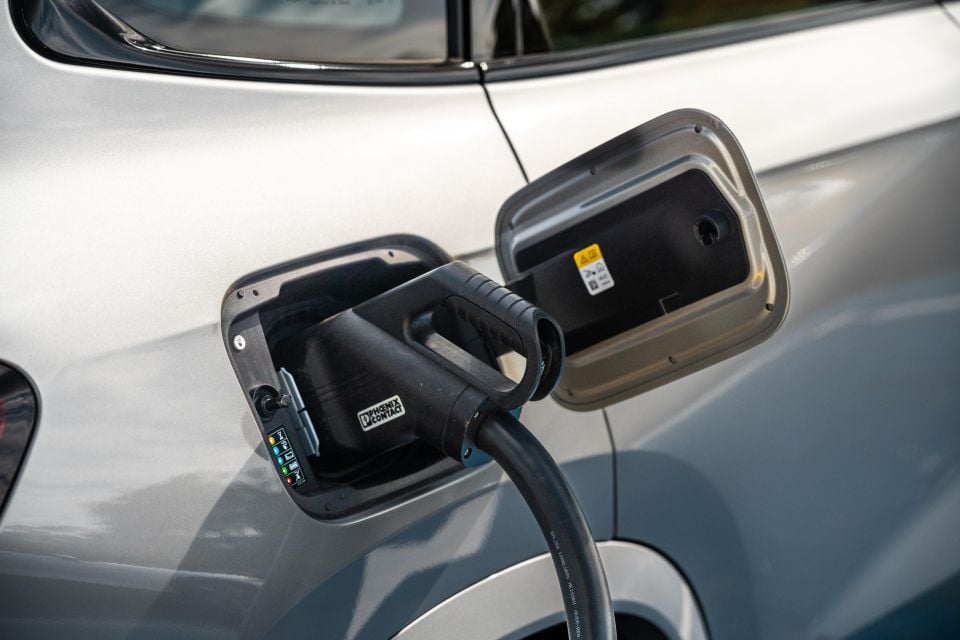BMWGroup Australia has joined forces with leading Australian battery recycler EcoBatt to launch a new national recycling program aimed at recovering and reusing critical materials from high-voltage electric vehicle (EV) batteries.
The initiative forms part of BMW’s global push toward a ‘circular economy’ by reducing waste and ensuring that valuable minerals from high-voltage lithium-ion batteries – including lithium, cobalt, nickel, manganese and graphite – are extracted and returned to the production supply chain.
The recycling process generates ‘black mass’, which is then supplied to downstream refiners, which recover the minerals and elements and return them to manufacturing supply chains to produce new batteries.
CarExpert can save you thousands on a new car. Clickhereto get a great deal.

Under the new partnership, BMW and Mini dealers across the country will send damaged or end-of-life EV batteries to EcoBatt’s Battery Discharge Plant in Campbellfield, Victoria.
There, the batteries are safely discharged to remove residual energy before being shredded at EcoBatt’s newly opened lithium battery and Battery-in-Devices Shredding (BIDS) Plant.
The advanced facility, the first of its kind in Australia, can process up to 5000 tonnes of batteries annually and is capable of recovering more than 90 per cent of valuable materials for reuse. Recovered energy from the discharge process is also repurposed to power the facility, minimising its carbon footprint.

EcoBatt’s Campbellfield plant marks the beginning of a regional expansion, with additional BIDS facilities planned for Western Australia and New Zealand.
Increasing EV adoption across Australia has brought increased attention to the risks associated with lithium-ion batteries, particularly in warmer climates. EcoBatt has addressing this in part by developing specialised 20-foot transport containers for damaged EVs.
The containers allow vehicles to be safely winched inside and transported to repair centres or recycling facilities. Each container is equipped with an advanced fire suppression system designed to prevent thermal runaway incidents during transit.

“Safety and sustainability are central to the BMW Group’s global strategy,” a BMW Group Australia spokesperson said. “By partnering with EcoBatt, we’re ensuring that valuable resources are recovered responsibly, while keeping people and the environment safe.”
EcoBatt, which also holds Australasian rights to leading safety brands ESE, Bebat, and Cellblock, is set to commission a new URT lithium battery recycling plant in 2026, increasing capacity to 30,000 tonnes per year and further enhancing Australia’s ability to recover critical minerals from used batteries.
For its part, BMW says the announcement of the new EV recycling scheme in Australia is in alignment with similar efforts by the BMW Group on a global scale.

In Germany, the company has a long-term partnership with SK tes – a leading provider of technology lifecycle solutions – to recover cobalt, nickel and lithium from used batteries and re-integrate the materials into the supply chain to produce new batteries.
The BMW Group has owned and operated its own Recycling and Dismantling Centre (RDC) in Germany for the past 30 years, where it recycles thousands of vehicles a year, and also partners with industry and academia to develop new EV battery recycling methods.
Research commissioned by the Battery Stewardship Council and conducted by the University of Technology Sydney in 2023 forecast that 30,000 tonnes of used EV batteries will enter the waste stream in Australia by 2030.

It also found that:
- By 2030 there will be 600,000 tonnes of batteries in EVs sold in Australia
- In 2040 this number will grow to more than 2.5 million tonnes of batteries in EVs sold in Australia
- For 2050 this number will grow to more than 4.1 million tonnes of batteries in EV sold in Australia
- By 2030 the number of expired EV batteries will grow to almost 30,000 tonnes per annum and by 2040 to more than 360,000 tonnes per annum
- In 2050 the volume of expired EV batteries entering the waste stream will have reached 1.6 million tonnes

